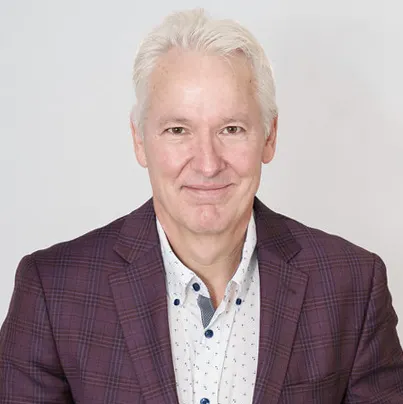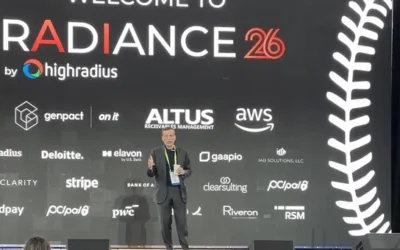Like many other companies in recent years, insurance-industry giant Aflac this year embraced the reality that finance and operations were inextricably linked and gave the additional title of COO to U.S. finance chief Fred Simard.
Simard, who joined the $22 billion company in September 2023, is an insurance-industry lifer who’s been a CFO for about 20 of his 34 years in the business. Knowing the industry inside and out and having an ingrained operational mindset led to his expanded role, which he also adamantly believes makes for faster, better decision-making.
It’s also worth noting actuarial science and the insurance business were Simard’s second love. He had a career in elite junior hockey that spurred hopes of an NHL career and led to years of coaching youth hockey. Today, he recognizes the advantages that both his combined financial and athletic past give him in business.
Aflac is an unusual international company in that it operates in only two countries, the United States and Japan, with two-thirds of the business derived from the latter. Mostly known as a provider of supplemental payroll-deduction products such as life insurance and short-term and long-term disability.
Simard recently spoke with CFO.com about his new combined roles, Aflac’s monetary exposure to Japan’s currency fluctuations and how his hockey days have informed his professional life.

Frederic Simard
CFO, Aflac U.S.
Notable previous employers:
- Guardian Life
- MetLife
This conversation has been edited for clarity and brevity.
DAVID McCANN: The first thing I want to ask is about your experience in elite junior hockey. What was that like?
FREDERIC SIMARD: I was on my way to the NHL at the age of 17. I played in a World Cup, where we won the gold medal for the province of Quebec, but I got injured and had back surgery a couple of weeks later. I played half a season more after the surgery, but there was too much pain.
On that team, pretty much all the players except me and another guy made it to the NHL. So that was a hard, hard thing at 17 years old.
Did that experience influence your professional career?
Yes, the influence of hockey had a lot to do with discipline, focus and hard work. I also coached kids for 12 years. It’s definitely made me a better executive, because you’re both dealing with a team and coaching individuals one by one, trying to make them better.
Before we talk about your expanded role, there’s a question about the health of all industries at this time of economic turmoil, given the tariff environment and continuing uncertainty. What’s your view of the insurance industry’s health right now?
The tariffs aren’t having a huge impact on insurance because our cost of goods is not directly linked to that. We probably will be somewhat affected, [in terms of] the macroeconomics of unemployment and interest rates, but it’s not a significant risk to the enterprise.
We’re not immune to unemployment. For example, when someone loses their job, they may be able to file a long-term disability claim. And obviously, we invest the money on our balance sheet, and interest rates going up and down affect that. So, we’re watching all of that, but we’re feeling pretty good about where we are.
Were you always going to eventually take over the COO role from the time you joined Aflac as CFO in September 2023?
No, there was no other discussion. In fact, I had actually applied to be the company’s chief actuary, because I thought I was a retired CFO.
But later, the CFO of Aflac U.S. was moving to Japan, and [Aflac CFO Daniel Amos and President Virgil Miller] asked me to take that role.
We’ve seen the prevalence of the COO title slowly diminish over the past 20 years, partly because CFOs have taken on a lot of operational responsibility. Did Aflac combine the roles to keep up with an established business trend, or were there specific internal reasons for doing it?
It’s more [the latter]. I don’t like to talk about myself, but some of that is about what I bring to the table and the way I do things with the team. I love the numbers and financials, but at the end of the day, I’m helping the business leaders drive the business.
I came to Aflac to help the firm with a number of issues it was having, and over time, it became sort of natural that I was spending a lot of time helping the business owners.
I think the value of connecting the CFO and COO roles, or just a CFO who is business-minded, is an outward focus with clarity. I understand how insurance operations work — the enrollment and claims and sales. Connecting all those things obviously drives financials, but I think having a CFO with a business understanding and mindset will speed up the decision process.
Can you offer an example of faster decision-making?
We acquired a dental and vision business about five years ago, before I joined, and it was not a great acquisition for the firm. There were a lot of issues with the back office and other things. I worked with the P&L owner to understand the root causes of these issues and consider options and made a recommendation to shut down the back office and move that operation to a [third-party administrator].
We implemented the whole thing in seven months — understanding the financials, the risk component and the operational component, driving a business case, negotiating with a vendor, going to the board, getting approval and then implementing.
“I came to Aflac to help the firm with a number of issues it was having, and over time, it became sort of natural that I was spending a lot of time helping the business owners.”

Fred Simard
CFO, Aflac U.S.
You could apply that to an M&A, too, if we were looking at one. It’s a similar sort of mindset, understanding why you want the acquisition and all the components. It’s about a disciplined, thoughtful approach, looking at everything end to end. Having the CFO and COO roles together is helpful with that because you save time.
You’re the CFO and COO of Aflac U.S., but you’re also an executive vice president of the company, which obviously has significant exposure to fluctuations of the Japanese yen. What kind of challenge does that present?
Yes, we’re a U.S.-based company [reporting] in U.S. dollars, and obviously a lot of our earnings are in yen, which has been fluctuating. The way we manage the yen exposure is critical to the success of Aflac.
At the highest level, we try to hedge so that we’re less impacted by the yen’s [movements], and we size our unhedged U.S. dollar exposure to the estimated economic surplus associated with our Japanese business. At the end of Q2, we held $27.1 billion of USD assets in our Japan general account, forward contracts with a notional balance of $1.9 billion, and $5.7 billion of yen-denominated debt.
We also hold out-of-the-money put options with $25 billion in notional value, which provide tail protection against a large appreciation in the yen. Adding all of this up, we feel that we are very well-positioned on an economic basis.





